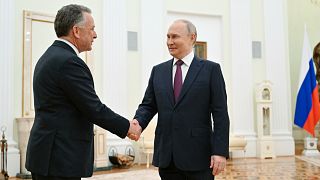South Africa
Tanzania has imposed a sweeping ban on agricultural imports from South Africa and Malawi, intensifying a long-running trade standoff that could significantly disrupt regional supply chains and market access.
Agriculture Minister Hussein Bashe announced the measure Wednesday, citing the need to safeguard Tanzania’s commercial interests amid persistent trade barriers from both nations.
“This is a business decision. Respect for reciprocal market access is fundamental,” Bashe said, emphasizing that Tanzania will no longer tolerate what it sees as unfair treatment of its exports.
The move directly targets key South African fruit exports such as grapes and apples, while significantly complicating logistics for Malawi, a landlocked nation that relies on Tanzania’s Dar es Salaam port for the bulk of its inbound and outbound trade. Malawi exports commodities including tobacco, sugar, and soybeans through Tanzanian ports.
Malawi’s authorities had introduced their import restrictions in March, covering goods such as flour, rice, bananas, maize, and ginger, framed as a temporary measure to protect domestic producers. Tanzanian officials, however, argue the restrictions disproportionately hurt cross-border commerce.
Bashe described the trade actions taken by Malawi as “unfair and harmful” to Tanzanian businesses and stated the import ban was necessary to restore balance. “No Tanzanian will suffer from a lack of South African grapes or apples,” he said, seeking to calm food security concerns.
Official data from Tanzania’s Ministry of Trade shows exports to Malawi have more than tripled between 2018 and 2023, highlighting the growing importance of the Malawian market to Tanzanian producers.
While Tanzania may redirect its exports to regional partners like Kenya, Namibia, and South Sudan, Malawi faces more complex challenges. Losing access to Dar es Salaam would likely force rerouting through Mozambican ports such as Beira and Nacala, increasing transit costs and delivery times.
Diplomatic efforts to resolve the trade impasse have thus far failed, though Bashe confirmed that negotiations remain ongoing.
All three countries involved, Tanzania, Malawi, and South Africa, are members of the Southern African Development Community (SADC), which promotes economic integration and free trade. The current tensions, however, risk undermining those goals and raising concerns among investors and regional businesses.
In a symbolic gesture highlighting the gravity of the situation, Bashe posted a video on social media showing spoiled Tanzanian bananas stranded at the Malawi border, underscoring the immediate impact of the deadlock.
Bashe stressed that the import ban is not intended to provoke a trade war but is aimed at protecting Tanzania’s market access and encouraging reciprocal treatment.
“Tanzania will no longer accept unequal terms of trade that work against our farmers and exporters,” he said.
South African and Malawian authorities have yet to issue official responses to the latest developments.











Go to video
Tanzania’s cat and mouse politics: Treason, arrests and shrinking political space
Go to video
South Africa slashes planned VAT hike after pushback from Democratic Alliance
Go to video
South African Catholics mourn Pope Francis
Go to video
South Africans flock to traditional Rand Easter Show
Go to video
South Africa's tax row heads to court as implementation date nears
Go to video
Tanzania opposition protests election ban